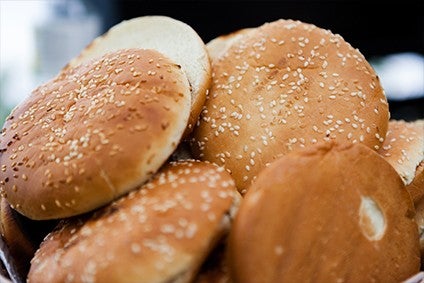A UK food story made mainstream international news this week – and laid bare the complexity of climate impacts and, in many ways, the tensions that can emerge when parts of the industry feels under fire.
Goldsmiths, a college that’s part of the University of London, banned the sale of beef in campus food outlets.
Beef products will no longer be available at the college’s cafes and shops when the new academic year starts next month. The ban is part of a number of measures Goldsmiths is introducing as part of a bid to be carbon neutral by 2025.
Professor Frances Corner, the warden of Goldsmiths, said: “The growing global call for organisations to take seriously their responsibilities for halting climate change is impossible to ignore. Declaring a climate emergency cannot be empty words. I truly believe we face a defining moment in global history.”
Joe Leam, the president of Goldsmiths’ union, said: “Banning beef is a bold move. Phasing out plastics and going to fully renewable energy are brilliant, too.”
He also noted on Twitter: “Amidst a climate emergency, we’re moving towards ending the 3.7 million kg Goldsmiths emits a year, including going to fully renewable energy and stopping the sale of beef and plastic bottles.

US Tariffs are shifting - will you react or anticipate?
Don’t let policy changes catch you off guard. Stay proactive with real-time data and expert analysis.
By GlobalData“We are under no illusion that this alone constitutes enough. The climate emergency needs a systemic response. This is a start. And on a pedantic note, we sold beef burgers about once a month in the cafeteria. That’s being stopped as part of a wider plan. No one’s gonna get chased off campus if they come with a beef burger hahaha.”
A bold move on beef – and one that attracted the expected mix of praise and criticism.
A lot of the opprobrium on social media came from the UK farming community, probably feeling in the firing line when it comes to climate change, not least after last week’s report from the UN’s Intergovernmental Panel on Climate Change (IPCC) on land use.
Perhaps, too, there are concerns among some in the UK farming sector of the precedent this could set, not least in a public sector that could present much-needed custom in an uncertain post-Brexit international market.
There was some criticism, too, from academia, with some questioning whether it is even appropriate for an educational institution to choose bans over debate.
“We should let students learn and allow them to make their own choices,” Dr. Sylvain Charlebois, a Professor in food distribution and policy in the Faculties of Management and Agriculture at Dalhousie University, said on Twitter. “Banning beef is silly. Why not alcohol, a potentially lethal poison?”
He added: “Students should have the freedom to choose and make decisions for themselves. WeWork decided to ban meat last year, but that’s a private business. This time, Goldsmiths is a public institution, a university. Quite different.”
Goldsmiths’ move is bold and possibly a little blunt. The argument that universities should be places of education and debate, rather than prohibition and restriction does have merit. Perhaps the college would have been better served to have cut back on the beef on its menus and in place expanded the range of plant-based options on offer?
As we’ve reported in-depth recently, the plant-based sector is not without its own environmental concerns.
However, while the UK farming sector (and meat industry broadly) can – rightly in some areas – talk up its efforts to become more sustainable, the links between growing worldwide meat consumption and the impacts on climate are incontrovertible.
Some of the attacks on Goldsmiths this week have been a little incongruous (“Transportation and electricity account for over 50% of emissions. If they wanted to make a difference they would ban all cars on campus. Suspect we will be waiting a while for that to happen,” one academic tweeted).
And the meat industry would do better to be proactive than defensive. The calls for humans to completely end their meat consumption remain on the margins. The IPCC report on land use and climate change recommended a more balanced diet, for meat consumption to be reduced, rather than an end to beef burgers or bacon butties.
On balance, some of the criticism aimed at Goldsmiths may be justified but, overall, the institution deserves praise for it, once again, bringing to mainstream attention the link between what we eat and the impact on the environment.
We all need to be considering that each time we take out a trolley or pick up a menu.





